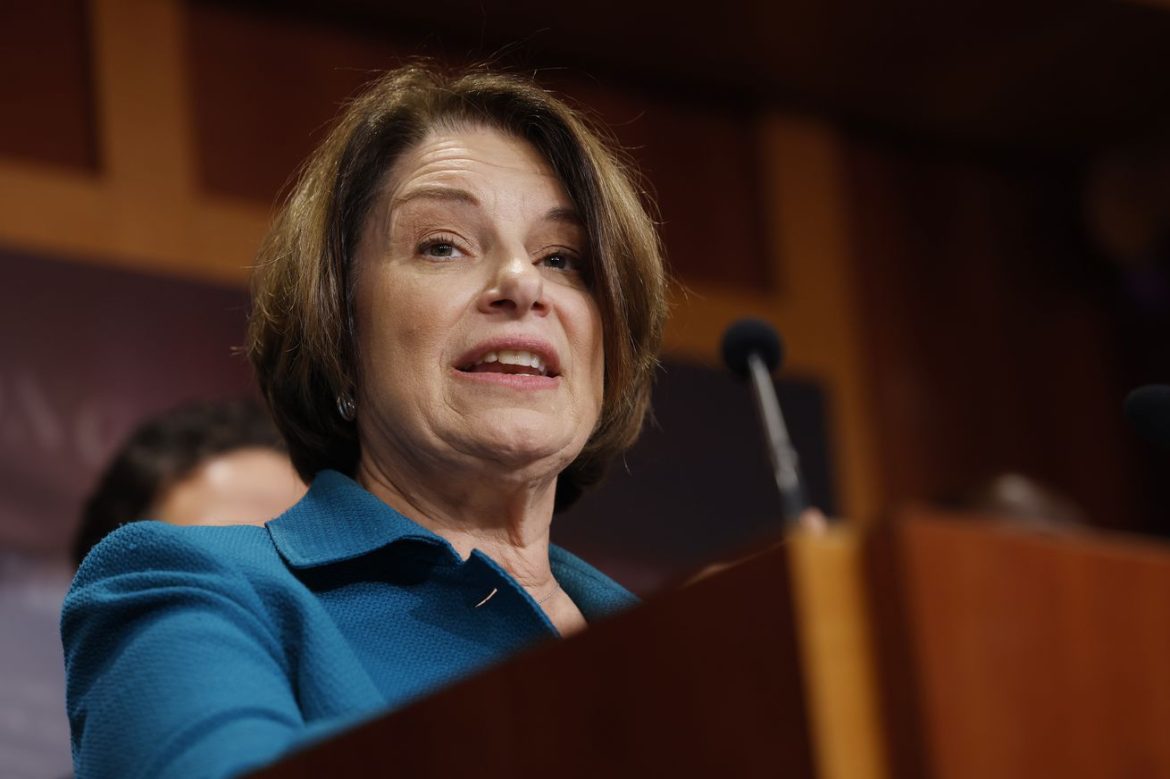
Nearly three years ago in January of 2022, the Senate seemed poised to reform antitrust law and place a check on Big Tech’s power. The Senate Judiciary Committee had just voted to advance the American Innovation and Choice Online Act (AICOA), led by Sens. Amy Klobuchar (D-MN) and Chuck Grassley (R-IA). The bill would have forced major changes to how many tech businesses operate, including by prohibiting them from self-preferencing their own products on their marketplaces.
But the bill’s momentum petered out in the months to come. Congress did manage to pass two important competition updates that year, the first allowing state attorneys general to choose which courts they filed antitrust suits in, and the second raising merger filing fees on the largest transactions to raise money for federal enforcers. AICOA, though, never passed through the Senate — let alone into law.
Klobuchar has been one of the leading advocates of antitrust reform. After House lawmakers launched a probe into Big Tech companies in 2019, she and several other lawmakers concluded the monopoly-busting system was broken. Existing antitrust rules were theoretically powerful, their theory went, yet decades of lax enforcement and unfavorable case law left courts and enforcers with flimsy tools for keeping the industry in check. Congress needed to step in and get it back on track.
Legislative efforts to overhaul the system have failed — yet in 2024, antitrust enforcement is experiencing something of a boom. Apple, Amazon, Meta and Google each face a federal anti-monopoly suit (two, in Google’s case.) The Department of Justice secured a win in its Google Search case, while Epic Games won a ruling against Android’s Play Store. The DOJ and Federal Trade Commission under the Biden administration have tightened merger guidelines and aggressively scrutinized deals.
Klobuchar is now reaching the end of her time chairing the Senate Judiciary subcommittee on antitrust. While its mission might look a bit less urgent these days, she argues it’s as important as ever. “It would be a lot easier to have some set rules of the road in place instead of this laborious, long litigation process,” she tells The Verge in a phone interview. Today, she’s overseeing a hearing about how to continue a bipartisan path to reform as the Trump administration prepares to take over.
While the most groundbreaking legislation hasn’t passed, she says, antitrust issues have still garnered more interest from congressional leadership on both sides of the aisle in recent years. “Maybe because of the bipartisan support and the good work that’s being done, we do keep bringing these cases,” she says. “But the lesson from the last four years is aggressive enforcement matters.”
Klobuchar expresses hope that President-elect Donald Trump’s antitrust watchdogs will continue pursuing important cases. While the Senate won’t hold new hearings to approve existing FTC Commissioner Andrew Ferguson’s ascendance to chair, she noted that FTC commissioner nominee Mark Meador wrote a positive article about the DOJ’s antitrust lawsuit against Ticketmaster. “I consider that a good sign,” she says. Klobuchar adds that former Democratic enforcers have told her that Trump’s pick to lead the DOJ Antitrust Division, Gail Slater, “gets it.”
Republicans will get to set the subcommittee’s agenda next year when they take over the majority in the Senate. But while she’ll no longer be chairing the panel, Klobuchar says, she’s going to continue to work for reforms. “It couldn’t be more important right now, with a new administration coming in, that we find ways to work across the aisle to get this done.”

